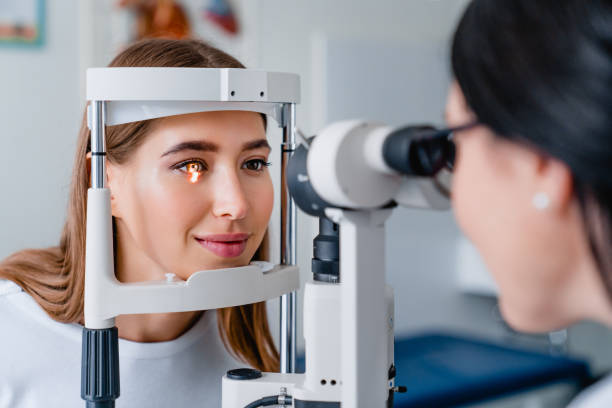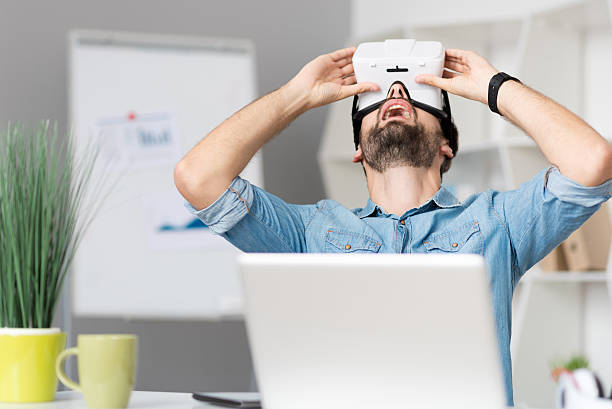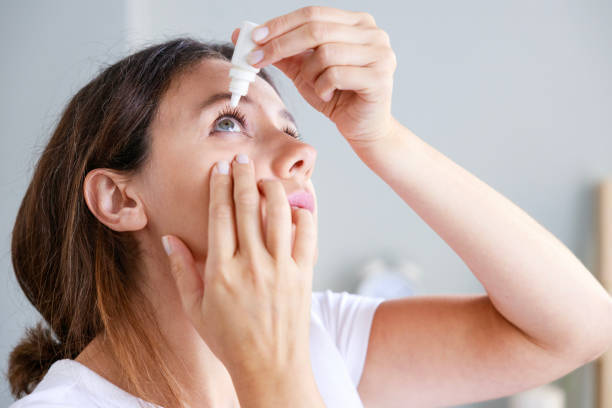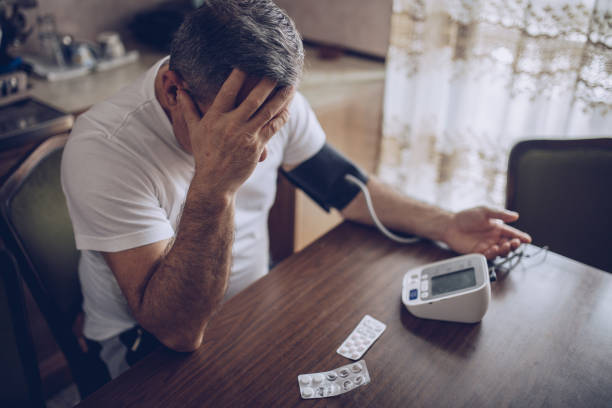Does High Blood Pressure Affect Your Vision: What to Watch For
High blood pressure, medically called hypertension, is a common health problem that ails millions of people worldwide. This issue has been studied deeply, but only a few know how it affects our eyesight. So, in this article, we will answer the question: does high blood pressure affect your vision?
We will discuss the common issues of high blood pressure linked to vision and how to diagnose, prevent, or treat them. High blood pressure can be a serious issue if you don’t take it seriously, so we will also point out some simple ways to manage it.
Understanding High Blood Pressure
When blood pushes against the walls of your arteries, it is too intense, which we call high blood pressure. It can result from various factors, including genetics, lifestyle choices, and underlying health conditions. Understanding the causes and risk factors is crucial for effective management.
The Link Between High Blood Pressure and Vision
The circulatory system plays a pivotal role in maintaining eye health. The delicate blood vessels in the eyes can be adversely affected by hypertension, leading to various vision issues. Researchers have found a strong connection between high blood pressure and issues like retinopathy and damage to the optic nerve.
Common Vision Issues Associated with High Blood Pressure
High blood pressure, or hypertension, isn’t just a concern for your heart—it can also affect your eyes. Let’s break down the common vision problems associated with high blood pressure in simple terms.
Blurred Vision
Imagine looking at something, but it could be clearer. That’s what blurred vision feels like. If you’ve got high blood pressure, it can hurt the small blood vessels in your eyes, making things look blurry.
Eye Strain and Discomfort
Do you ever feel your eyes getting tired or uncomfortable, especially after reading or staring at a screen for a while? High blood pressure can contribute to this eye strain and discomfort.
Retinopathy
This may sound complicated, but it’s essentially damage to the retina, the back part of your eye. High blood pressure can damage the little blood vessels in the back of your eye (the retina), causing trouble with how you see things.
Optic Nerve Damage
Think of the optic nerve as the messenger that carries signals from your eyes to your brain. High blood pressure can damage this messenger, leading to issues with how you see things.
Diagnosing Vision Issues Caused by High Blood Pressure
Checking for vision problems linked to high blood pressure involves a simple process involving eye care professionals and healthcare providers. Here’s an easy guide on how these issues can be found:
Regular Eye Check-ups

It’s essential to regularly visit eye doctors, especially if you have high blood pressure. Eye specialists will examine your retina, optic nerve, and blood vessels during these check-ups. They can catch early signs of issues like hypertensive retinopathy, which can show up as changes in how your blood vessels look.
Keeping an Eye on Blood Pressure
Checking your blood pressure regularly is crucial. When you visit your healthcare provider for routine check-ups, they will measure your blood pressure. High blood pressure can affect the tiny blood vessels in your eyes, and by consistently monitoring it, any subtle changes can be noticed early.
Talking to Both Eye and Healthcare Pros
It’s important to share information between your eye care professional and healthcare provider. Tell them if you have high blood pressure, and tell them about your medications. This teamwork helps them understand your overall health better, leading to more accurate diagnoses and practical treatment plans.
By following these simple steps, you can keep an eye on your eye health, especially when high blood pressure is part of the picture.
Read More: 10 Ways to Take Care of Your Eyes
Preventive Measures for Maintaining Eye Health
Taking care of your eyes is crucial, especially when preventing issues related to high blood pressure. Here are three easy preventive measures to maintain your eye health:
Eat Eye-Friendly Foods
Imagine your eyes as superheroes, and the right foods are their power-ups. Include foods packed with antioxidants in your diet, such as carrots, leafy greens, and berries. These tasty treats not only please your taste buds but also do wonders for your eyes. These foods provide the vitamins and minerals your eyes need to stay strong and resilient.
Stay Active – It’s Good for Your Eyes Too
Just like the rest of your body, your eyes benefit from regular exercise. It doesn’t have to be intense; even a daily walk or gentle stretches can help. Exercise improves blood circulation, ensuring your eyes get the oxygen and nutrients they need to function at their best.
Give Your Eyes a Break from Screens

In today’s digital age, we spend much time staring at screens. This constant focus can strain your eyes. Here’s a simple trick to give your eyes a break: every 20 minutes, take a 20-second break and shift your focus to something 20 feet away. It’s easy to prevent eye strain and keep your vision in tip-top shape. It’s a simple but effective way to reduce eye strain.
Treatment Options for High Blood Pressure-Related Vision Problems
When high blood pressure starts affecting your vision, exploring treatment options to prevent further complications is essential. Here are three approaches to address vision problems associated with high blood pressure:
Medications to Control Blood Pressure
One primary strategy is to manage high blood pressure itself. Your healthcare provider may prescribe medications specifically designed to lower blood pressure. These medications reduce the strain on your blood vessels, including those in your eyes. Taking these medications as prescribed is crucial to maintain stable blood pressure levels.
Surgical Interventions in Severe Cases
In more severe cases where vision problems are advanced, surgery might be an option. It’s a drastic move for your eyes, stepping in when things get tough. These procedures aim to address specific issues caused by high blood pressure, such as retinopathy or optic nerve damage. Not all surgeries are the same, and that’s where your eye specialist comes in. They’ll carefully assess your condition and recommend the most fitting surgical approach. It’s like having a personalized plan to address your unique situation.
Monitoring and Adjusting Medications for Eye Health
Certain medications prescribed for high blood pressure can impact your vision. Communicating any changes or concerns with your healthcare provider promptly is essential. They can adjust your medication if necessary or explore alternative options that maintain your blood pressure without negatively affecting your eyesight. Regular follow-ups and open communication are key to managing both conditions effectively.
Understanding that treating high blood pressure is not only about the heart but also about preserving your vision is crucial. Collaborating with your healthcare team ensures a comprehensive approach to address both aspects of your health. Remember, seeking professional advice and adhering to prescribed treatments are pivotal in managing high blood pressure-related vision problems.
Impact of Medications on Vision
It’s important to know that medications for high blood pressure can sometimes affect your eyesight. Some medications change how you see things or worsen existing eye problems. Talking to your healthcare professionals about any worries or symptoms you notice is important to ensure everything is managed well.
Tips for Managing High Blood Pressure and Protecting Your Vision
Maintaining good health, especially for your heart and eyes, involves doing a few simple things regularly. Let’s break it down:
Keep Stress in Check
Finding ways to handle stress is important because too much stress can affect your blood pressure. Stress management can be anything that helps you relax—like taking a walk, listening to music, or spending time with friends and family. When you manage stress well, it’s like giving your heart and eyes a break.
Take Your Medications as Prescribed

If your doctor gives you medicine to manage your blood pressure, follow their instructions exactly as they tell you. Medications are vital in keeping your blood pressure healthy, which is good for your heart and eyes.
Stay Active with Regular Exercise
You don’t have to run a marathon to stay healthy. Simple walking, swimming, or gardening exercises can make a big difference. Regular exercise helps keep your heart strong and maintains good blood pressure. Plus, it’s beneficial for your eyes, too.
Further Reading: Eyeglasses vs. Contact Lenses: Pros and Cons
Conclusion
Knowing the answer to does high blood pressure affects your vision can be very important for those who have it or know someone who does. There are many signs you can look for or diagnose. Once you find those signs, there are steps you can take, and if you don’t have them, there are steps you can take to prevent it from happening to you or others you know.
Ultimately, high blood pressure is a significant health concern that should be treated seriously because it’s linked to severe health problems, including issues with your eyesight. By following our advice on how to handle it, you can lead a healthier and better life.
For more information on eye health and vision care, visit Mehboob Optics. Regular eye check-ups are essential, especially if you have high blood pressure, to ensure comprehensive care for your eyes and overall well-being.
FAQs
Can high blood pressure cause permanent vision loss?
While not in every case, uncontrolled high blood pressure can lead to irreversible vision problems.
How often should I check my eyes if I have high blood pressure?
Annual eye exams are recommended to detect potential issues early for individuals with high blood pressure.
Are there specific foods that promote eye health and lower blood pressure?
Yes, a diet rich in antioxidants, omega-3 fatty acids, and potassium benefits blood pressure and eye health.
Can exercise alone control high blood pressure and prevent vision problems?
While exercise is crucial, it should be combined with other lifestyle changes and, if prescribed, medication for optimal blood pressure control.
What should I do if I notice changes in my vision while on blood pressure medication?
Contact your healthcare provider immediately to discuss any concerning symptoms or side effects.

